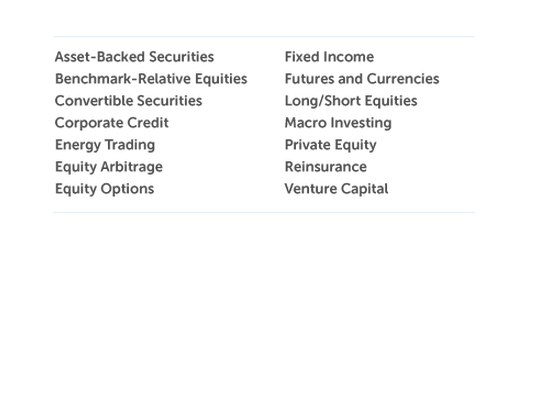Starting a Forex Fund How to start a Forex Hedge Fund Set up a Forex Hedge Fund Forex Fund Start
Post on: 22 Май, 2015 No Comment

Please click on the Headings to read the hedge fund articles and offers.
Tip of the day: How many investors can my start up hedge fund have?
You have decided that this is the time to become a start up hedge fund manager. As a start up hedge fund manager, you recently heard that you can even generally advertise your fund under legislation known as the JOBS Act! This means that you are now able to use radio, internet, print and other mass media to solicit the sale of your hedge funds securities. You understand that under the JOBS Act your investors can be only Accredited Investors even though your solicitations may be directed to investors who are both accredited and non accredited. But with such a pool of potential investors, what are the limits on the number of investors in a hedge fund?
The Startup Hedge Fund Managers Tip of the Day- Fiduciary Duties
When starting a hedge fund, the start up hedge fund manager should be aware of the special obligations that are owed investors. It is often stated that the hedge fund manager, as the investment adviser, has fiduciary obligations.
Many forms of conduct permissible in the workaday world for those acting at arms length are forbidden by those bound by fiduciary ties. A fiduciary is held to something stricter than the morals of the marketplace. Not honesty alone, but the punctilio of an honor the most sensitive, is then the standard of behavior. See Meinhard v. Salmon,164 N.E. 545, 546 (N.Y. 1928).
THESE FIDUCIARY DUTIES INCLUDE THE DUTY OF:
FULL DISCLOSURE. An adviser must provide full disclosure of all facts material to the engagement of the adviser. Some of the principal disclosures include:
- Conflicts of Interest.
- Disciplinary Events and Precarious Financial Condition. The SEC requires a registered adviser to disclose to clients and prospective clients material facts about financial condition of the adviser that is reasonably likely to impair the advisers ability to meet contractual commitments to clients; and certain disciplinary events of the adviser (and certain of its officers) occurring within the past 10 years, which are presumptively material.
PROVIDING SUITABLE ADVICE.
HAVING REASONABLE INDEPENDENT BASES FOR INVESTMENT RECOMMENDATIONS.

OBTAINING BEST EXECUTION. Where an adviser has responsibility to direct client brokerage, it has an obligation to seek best execution of clients securities transactions. An adviser must seek to obtain the execution of transactions the most favorable to the client under the circumstances and considering the full range and quality of a brokers services.
PROXY VOTING IN THE BEST INTEREST OF THE CLIENT. The SEC has stated that an investment adviser authorized to vote client proxies has a fiduciary duty to clients to vote the proxies in the best interest of its clients and cannot subrogate the clients interests to its own.
If you are starting a hedge fund and are registering as an investment adviser you should make sure that you have a written code of ethics. The SEC requires that all advisers registered with the SEC must adopt and enforce a written code of ethics reflecting the advisers fiduciary duties to its clients. Start up hedge fund managers will find it a useful operational and compliance tool. The startup hedge fund manager should consider SECs guidance as applicable to state registered funds as well. The SEC has stated that, at a minimum, the advisers code of ethics must cover:
You are a startup hedge fund manager and primarily, your fund will trade futures; but you may also trade equities. You are registering as a Commodity Pool Operator, functioning as Commodity Trading Advisors. The next question, what about registration as an investment adviser? The SEC takes the positions that generally an exemption from registration is available to any adviser registered with the CFTC as a commodity trading advisor that advises a private fund, provided that the adviser must register with the SEC if its business becomes predominantly the provision of securities-related advice.
Start up hedge fund managers should be aware that, generally, the hedge fund operator may claim an exemption from registration as a commodity pool operator under CFTC Rule 4.13(a)(3), the so called Deminimis Exemption. So called, because at all times, the hedge fund must meet one or the other of the following tests with respect to its commodity interest positions, including positions in security futures products, whether entered into for bona fide hedging purposes or otherwise: (A) The aggregate initial margin, premiums, and required minimum security deposit for retail forex transactions required to establish such positions, determined at the time the most recent position was established, will not exceed 5 percent of the liquidation value of the pools portfolio, after taking into account unrealized profits and unrealized losses on any such positions it has entered into; Provided, That in the case of an option that is in-the-money at the time of purchase, the in-the-money amount may be excluded in computing such 5 percent; or (B) The aggregate net notional value of such positions, determined at the time the most recent position was established, does not exceed 100 percent of the liquidation value of the pools portfolio, after taking into account unrealized profits and unrealized losses on any such positions it has entered into. To maintain the 4.13(a)(3) Deminimus Exemption, generally, all the hedge funds investors must meet the Accredited Investor requirements.
Starting a Hedge Fund Tip of the Day — The De Minimis Holdings Exception to ERISA
Youre thinking about starting your own boutique hedge fund. You have been working in the financial industry for a number of years; successfully trading stock options for your own account using your proprietary trading system. You have many business connections that would direct their companys employee benefit plans to be investors in your start up hedge fund and this would allow you to start your hedge fund with significant assets. However you have also heard that you need to avoid having ERISA (and ERISA/IRA) investment that would constitute 25% or more of your funds assets because doing so would make the hedge fund manager a plan fiduciary to the employee benefit plan and the hedge fund. Having less than 25% would be considered De minimis holdings, which is the principal exception relied upon by most hedge fund managers.
One reason (of many) why the hedge fund manager may not want to be considered a plan fiduciary of his friends company employee retirement plan is that Section 404(a)(1)(c) of the Employee Retirement Income Security Act of 1974 (as amended), provides, inter alia, that the fiduciary of the plan is under the duty to diversify investments in order to reduce the potential of a large loss, unless under the circumstances it is clearly prudent not to do so. Plan fiduciaries are required to act in accordance with the documents governing a plan to the extent not inconsistent with the terms of ERISA. The fund manager may not be able to fulfill this obligation under the funds trading strategy.
Fiduciaries have important responsibilities and are subject to standards of conduct because they act on behalf of participants in a retirement plan and their beneficiaries.
These responsibilities include:
- Acting solely in the interest of plan participants and their beneficiaries and with the exclusive purpose of providing benefits to them;
- Carrying out their duties prudently;
- Following the plan documents (unless inconsistent with ERISA);
- Diversifying plan investments; and
- Paying only reasonable plan expenses.














